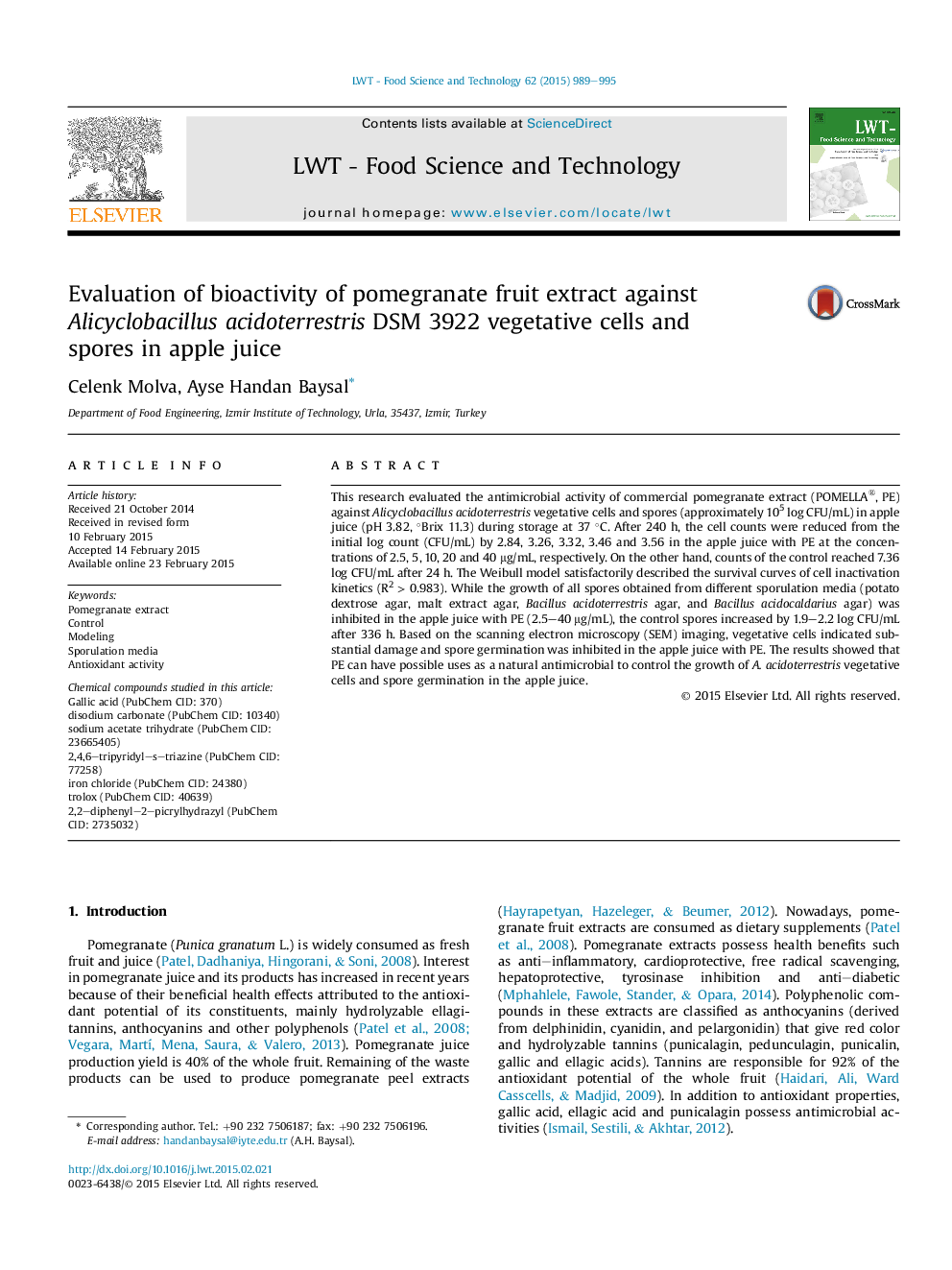| Article ID | Journal | Published Year | Pages | File Type |
|---|---|---|---|---|
| 6400598 | LWT - Food Science and Technology | 2015 | 7 Pages |
â¢Bioactivity of pomegranate extract (PE) against cells and spores was determined in the apple juice.â¢Vegetative cells were more to sensitive to PE treatments than spores.â¢Cell inactivation kinetics can be well described by the Weibull model.â¢PE altered the cell surface structures and prevented spore germination/outgrowth.
This research evaluated the antimicrobial activity of commercial pomegranate extract (POMELLA®, PE) against Alicyclobacillus acidoterrestris vegetative cells and spores (approximately 105 log CFU/mL) in apple juice (pH 3.82, °Brix 11.3) during storage at 37 °C. After 240 h, the cell counts were reduced from the initial log count (CFU/mL) by 2.84, 3.26, 3.32, 3.46 and 3.56 in the apple juice with PE at the concentrations of 2.5, 5, 10, 20 and 40 μg/mL, respectively. On the other hand, counts of the control reached 7.36 log CFU/mL after 24 h. The Weibull model satisfactorily described the survival curves of cell inactivation kinetics (R2 > 0.983). While the growth of all spores obtained from different sporulation media (potato dextrose agar, malt extract agar, Bacillus acidoterrestris agar, and Bacillus acidocaldarius agar) was inhibited in the apple juice with PE (2.5-40 μg/mL), the control spores increased by 1.9-2.2 log CFU/mL after 336 h. Based on the scanning electron microscopy (SEM) imaging, vegetative cells indicated substantial damage and spore germination was inhibited in the apple juice with PE. The results showed that PE can have possible uses as a natural antimicrobial to control the growth of A. acidoterrestris vegetative cells and spore germination in the apple juice.
